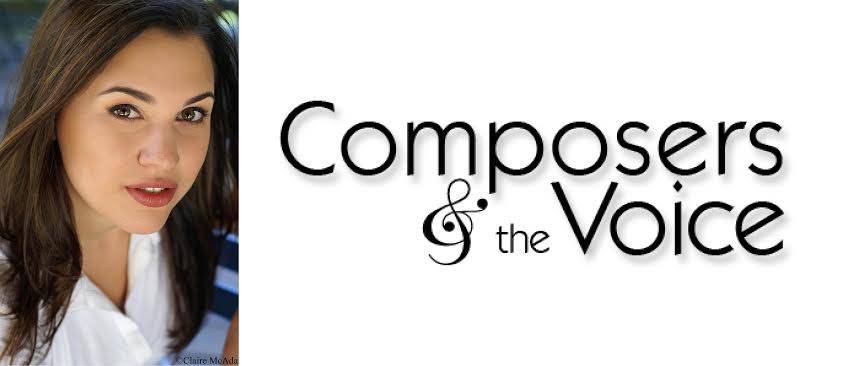INSIDE Composers & the Voice - January 13th, Part II
 This week I was most struck by how perceptions about ourselves as artists - whether performing, creative, or both, led to differing reactions to music.
This week I was most struck by how perceptions about ourselves as artists - whether performing, creative, or both, led to differing reactions to music.
We began Monday's session by hearing Deborah Lifton sing a new work by Guy Barash - and she did a fantastic job with Guy's microtones! Having been nervous about this new challenge, it was amazing to hear how beautifully Deborah incorporated these pitches into the line, and how as listeners, we simply perceive these challenging pitches as part of the melodic line. Since I sing a fair amount of music in varying tuning systems both as a soloist and with my ensemble Ekmeles, I am constantly aware of how listeners are comfortable with, and open to, various tonalities and tuning systems... fascinating, particularly considering how hard we performers work to make this type of intonation as accurate as possible.
An intriguing conversation ensued about balance- particularly how composers translate what will be an orchestral or chamber piece to the piano. Some composers discussed how the balance of what we hear in the C & V sessions is not what they have in mind for the final piece, which may be scored for singer and orchestra or chamber ensemble. [C&V Artistic Director] Steve Osgood also raised the point of how we must ensure that the audience perceives big orchestral moments in which the singer is intentionally covered as purposeful, rather than an oversight in the balance. As singers it is difficult to know at times whether we're being covered by the ensemble or riding above it, and we rely completely on the ears of others to make this distinction. Our entire sense of our voices in regard to balance is difficult to gauge.
Another interesting dialogue arose in regard to text, and our impression of both comprehension and diction. Some in our group are foreign-born or non-native English speakers. Andreia Pinto-Correira raised a question about a particular word which she thought may be difficult to pronounce, but Dominic Armstrong clarified, saying that the word was not an issue for him. Kelly Horsted raised the point of syllabification in Jeremy Gill's piece. A word which perhaps seemed strangely notated in the score, upon first glance, was actually more comprehensible due to Jeremy's setting. During Matt Burn's performance of Joseph Rubinstein's piece, we again discussed the particular setting of a word and how it might be perceived as another word altogether.
This idea of how things seem continues to intrigue me, in new music most of all. We are constantly engrossed by our sense of self, of who we are as singers, musicians, people. When we perform, our perception of our strengths and weaknesses plays out in all kinds of curious combinations, all of which make our work what it is. And in a premiere, this self awareness contributes to what will be the very first hearing of a new piece of music. On Monday night I was yet again moved by the talents, openness and support in our C & V group. When our personal perceptions lead us to doubt our abilities and performances, this positive and warm environment helps us find our footing and create the best of which we are capable.
“What you see and what you hear depends a great deal on where you are standing. It also depends on what sort of person you are.” ―C.S. Lewis, The Magician's Nephew
-Rachel Calloway

